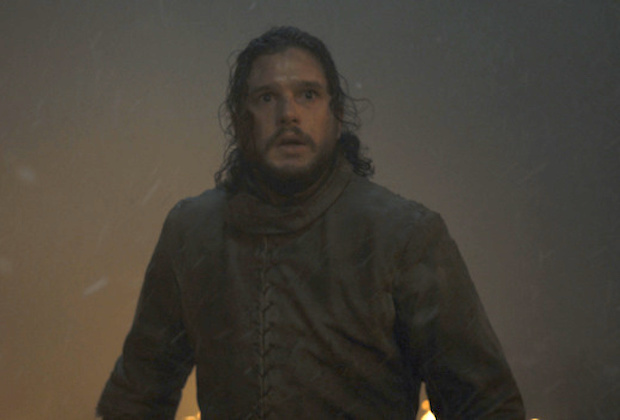Winter has finally come. In the much-anticipated Battle of Winterfell, winter comes for everyone. Well, everyone except Cersei, her army, and single ally (Euron Greyjoy), who decide to sit out the battle between the living and the dead.
Spoilers WILL be present for the third episode of the final season, so proceed at your own risk.
Summary
The Night King arrives at Winterfell with his army of the undead. The war between the living and the dead commences.
Analysis
There has not been a greater battle ever aired on American television than the one that continues for nearly 80 consecutive minutes in “The Long Night.” There may not be many – if any – cinematic battle scenes as epic as Game of Thrones’s masterpiece.
Melisandre arriving right before the battle begins is in her typical fashion – showing up without a care in the world, right in the nick of time. After not seeing her for over a season, it only feels right that she returns for the biggest episode of the series thus far. And she provides some very key assistance, first by lighting the weapons of the Dothraki on fire, and later lighting the last line of defense on fire (and this, as the viewer can tell, takes a great deal of effort and concentration. Melisandre doesn’t even appear sure herself of the outcome). While both pieces of assistance ultimately result in failure with the Dothraki getting slain mercilessly and the border of Winterfell being broken anyway, Melisandre still shows that she fights for the living, and does what she needs to do to help the living win. When this reviewer first saw her gallop up to Jorah (RIP, hero) on her horse, he wasn’t sure what side she was on. Given the fact that she will always fight for the Lord of Light, it is often unclear what her motivations are, and what her actions will entail. However, she proves to be an asset to the living, and makes her grand reappearance. Plus, she calms Arya down, simply saying, “What do we say to the god of death?” When Arya responds, “Not today,” the viewer knows she’s back. Without Melisandre, Arya may never have saved the Three-Eyed Raven, slaying the Night King in the process.
Melisandre’s death scene is interesting. It appears that her death is by choice, as she removes her magic necklace that keeps her young, and simply falls to the ground, seemingly dying of old age. However, this reviewer sees her death as a sign that she has completed her job on earth. The Lord of Light kept her alive all those centuries simply so she could provide the living with what they need to defeat the dead. Once they succeed, Melisandre is finally freed from her curse of being the Red Woman, and she is able to die. The fact that she keeps matter-of-factly stating that she will not survive the night only bolsters this thought. While she makes her share of mistakes over the seasons (this reviewer will never find it in his heart to forgive her for burning Shireen – the most innocent character in all of GoT – at the stake in a ploy to get Stannis to the Iron Throne), she shows up when it matters most, and she is finally able to succumb to death as a result.
One complaint that fans will undoubtedly have over the next week is that not enough major characters died. Jorah, Beric, Edd, Lyanna, and Theon all meet their ends, but characters such as Brienne, Grey Worm, Podrick, Tormund, The Hound, and all of the “main” characters remain alive. In previous seasons (or, more accurately, under the near-complete direction of author George R.R. Martin), more major characters likely would have died. This is definitely a bit of a letdown, and feels like a far cry from a show that once brought us the Red Wedding. However, there are still three episodes left, and there is still another major battle to occur. If most of these characters remain alive after the conclusion of the finale, then this reviewer believes it’s fair to question the direction that the writers decided to take to end the show. Until then, just enjoy the greatness that is being put on the screen.
After eight seasons of build-up, the battle between the living and the dead lasts just one supersized episode. This, however, is not a bad thing. While all hope looked lost at the tail end of the episode and it seemed as if the Battle of Winterfell would continue into May, the fact that everything is (seemingly) wrapped up is a good thing. Game of Thrones has always been about one thing: the Iron Throne. It’s in the title, after all. The show is not about zombies, and it is not about the undead. While the White Walkers, led by the Night King, have been a foreboding threat for years, that’s not what the show wants to be about. Rather, it wants to show audiences how power can corrupt, and how much people will do to obtain that power. With that in mind, it only makes sense that the Night King is defeated in the Battle of Winterfell. The show is meant to end one way: with a fight for the Iron Throne.
Some have been complaining about the lighting (or lack thereof) present in “The Long Night.” This is a fair complaint until one actually thinks about it. The battle takes place during a major snowstorm in the dead of night. What about that setting screams “bright lights?” While it may be nice to be able to see everything completely clearly, that’s not how battles work. Battles are dark, and things are messy. Game of Thrones effectively places the viewer in the middle of the battle by including many quick cuts, and darkening the scenes.
Lyanna Mormont has died, and so has her (much) older cousin, Jorah. Both die valiantly, with the former taking a giant down with her, and the latter doing what he has done all series long – protecting Daenerys, his Queen and his love. Both deaths are traumatic and emotional. Both characters were fierce and tough-as-nails. They die heroically.
Speaking of dying heroically, Beric dies saving Arya, and Theon dies protecting Bran. Both have been part of the series for nearly its duration, and both have had their ups and downs. Theon, in particular, completes an incredible redemption arc in his heroic bid to keep Bran safe.
When the Night King raises his arms and the dead, including Lyanna and Beric, begin to rise, it seems as if the living is doomed. Then, the dead Starks begin to rise from the crypts, where many of the women and children (and Tyrion and Varys) are hiding out, and a massacre is underway. (Side note: it really, really, really was a massive oversight to hide the non-fighters in a crypt complete with a bunch of dead Starks when the enemy raises the dead back to life). Many die in the crypts, but the major characters live (…). It is at this moment that this reviewer audibly sighed and said, “it’s a massacre.” All hope feels lost, and it surely seems as if the Night King will at least appear to be winning at the conclusion of the episode. Watching him raise everyone from the dead, taunting Jon in the process, is bone-chilling. A fantastic cinematic moment.
Watching The Hound suffer through the fight as the fire rages on around him is quite difficult. A character that is so strong, so fierce, and so ferocious is rendered useless for a portion of time because of his deathly fear of fire. His eyes are wide, and he is clearly in an immense amount of psychological pain. It is a reminder that even the strongest of us have fears. No one is a robot; everyone feels pain. However, The Hound is able to overcome his bout with fear when he sees Arya in need. The profane trained killer has a heart after all, as fans of the series have known for seasons.
Speaking of Arya… that ending. When she leaves after Melisandre reminds her of the “not today” call to the god of death, it’s easy to forget that she has gone at all. The scene immediately cuts back to the battle, and Arya isn’t heard from again until that climatic scene with the Night King and the Three-Eyed Raven. In all honesty, this reviewer forgot about Arya during those Jon-Daenerys dragon scenes. However, when all hope is lost and the Night King is just about to kill the Three-Eyed Raven, his adversary for centuries, Arya attacks him from behind. When he begins to choke her (this reviewer thought she was a goner), she drops her weapon into her other hand and stabs him. All her seasons of training have finally paid off; Arya has transformed from a young girl who didn’t even know how to hold a sword into a trained assassin who takes out death incarnate. She saves humanity.
The budget for “The Long Night” must have been huuuggeeeee. The dragons are extremely present, as one would expect, and there is a ton of fire, extras, weapons, and moments that one can only realistically expect to see in big-budget films. HBO certainly proves that it is willing to shell out the big bucks for its biggest show ever.
One final note: the musical score for “The Long Night” is stunning. Particularly during the final moments of the episode, right before Arya slays the Night King, the score is simply haunting. Seemingly inconsequential things such as the score of a piece of entertainment transform a good piece of art into a legendary one. This occurs in “The Long Night.”
Verdict
In “The Long Night,” fans are promised the most epic battle scene in the history of American entertainment. This reviewer would venture to say that they receive just that. The Battle of Winterfell will go down in history as one of the greatest achievements in the history of American cinema.
The only thing keeping this episode from an unprecedented perfect 10/10 rating is the fact that only a few nameable characters die. If this changes and more characters perish moving forward, then perhaps reevaluation will be undergone. Regardless, “The Long Night” will not be forgotten for a long, long time.
9.85/10




